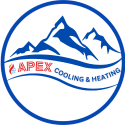
Tips for Improving Indoor Air Quality with Your HVAC System
In today’s world, the quality of indoor air in our homes and offices has become a significant concern, especially considering that most people spend the majority of their time indoors. Poor indoor air quality can lead to a variety of health issues, ranging from allergies and respiratory problems to more severe conditions like asthma. Fortunately, your HVAC (Heating, Ventilation, and Air Conditioning) system plays a pivotal role in maintaining the cleanliness and safety of the air you breathe indoors. This comprehensive guide provides actionable tips and insightful information on enhancing your indoor air quality using your HVAC system, ensuring a healthier living environment for you and your loved ones.
Understanding Indoor Air Quality (IAQ)
Before diving into the solutions, it’s crucial to grasp what Indoor Air Quality (IAQ) entails. IAQ refers to the air quality within and around buildings and structures, especially as it relates to the health and comfort of building occupants. Understanding and controlling common pollutants indoors can help reduce your risk of indoor health concerns.
The Role of Your HVAC System in IAQ
Your HVAC system does more than regulate the temperature of your indoor environment; it also plays a crucial role in filtering and circulating the air you breathe. A well-maintained HVAC system can remove contaminants from the air, such as dust, pollen, mold spores, and other allergens, improving the overall IAQ.
1: Regular Maintenance and Cleaning
The first and most crucial step in improving IAQ with your HVAC system is to ensure it undergoes regular maintenance and cleaning. This includes replacing air filters every 90 days or as recommended by the manufacturer, checking for duct leaks, and cleaning components such as coils and fans to prevent the buildup of dust and mold.
2: Upgrade to HEPA Filters
High-Efficiency Particulate Air (HEPA) filters are significantly more effective than standard air filters at trapping microscopic particles. Upgrading to HEPA filters can drastically improve your indoor air quality by filtering out 99.97% of particles that are 0.3 microns in diameter or larger.
3: Consider Air Purifiers
Integrating air purifiers with your HVAC system can further enhance your indoor air quality. Air purifiers work by circulating the air through a filter that captures pollutants. They are especially beneficial in areas prone to high pollution levels or in homes with pets.
4: Maintain Proper Humidity Levels
Humidity levels play a vital role in IAQ. Too much humidity can encourage the growth of mold and mildew, while too little can exacerbate respiratory conditions. Using a humidifier or dehumidifier in conjunction with your HVAC system can help maintain optimal humidity levels (between 30% and 50%).
5: Ensure Adequate Ventilation
Ventilation is critical for maintaining good indoor air quality. Ensure that your HVAC system is set to include a fresh air intake. This will help to dilute and remove pollutants from your indoor air. Consider opening windows when weather and outdoor air quality permit.
6: Use UV Lights
Ultraviolet (UV) lights can be installed in your HVAC system to kill bacteria, viruses, and other pathogens in the air. This technology has been proven effective in improving IAQ and is particularly beneficial in homes with individuals prone to illnesses or with weakened immune systems.
7: Regularly Inspect and Clean Ductwork
Dirty or leaky ductwork can significantly deteriorate indoor air quality by distributing pollutants throughout your home. Regular inspections and cleanings can prevent these issues, ensuring that your HVAC system circulates clean, fresh air.
8: Control Sources of Indoor Pollution
Reducing the source of indoor pollution can dramatically improve IAQ. This includes using natural cleaning products, avoiding smoking indoors, and minimizing the use of volatile organic compounds (VOCs) found in paints, varnishes, and air fresheners.
9: Invest in Smart Thermostats
Smart thermostats can optimize your HVAC system’s performance, ensuring it runs efficiently while maintaining healthy indoor air quality. These devices can automatically adjust the temperature and humidity levels based on your preferences and schedule, reducing the risk of IAQ issues.
10: Educate Yourself and Stay Informed
Staying informed about your HVAC system and the latest in air quality technology can help you make informed decisions that benefit your home’s air quality. Regularly consulting with HVAC professionals and researching new advancements in air filtration and purification technologies can lead to a healthier indoor environment.
Conclusion
Improving your indoor air quality with your HVAC system is a proactive step towards a healthier lifestyle. By following these tips, you can significantly reduce the pollutants in your indoor environment, creating a safer
